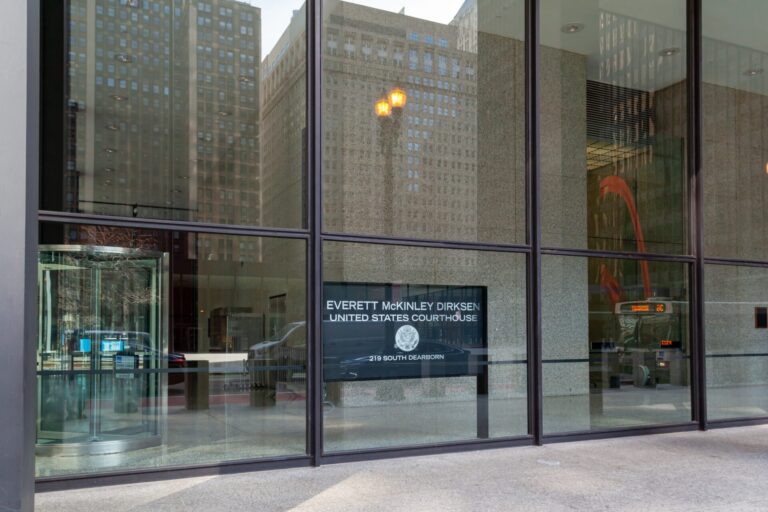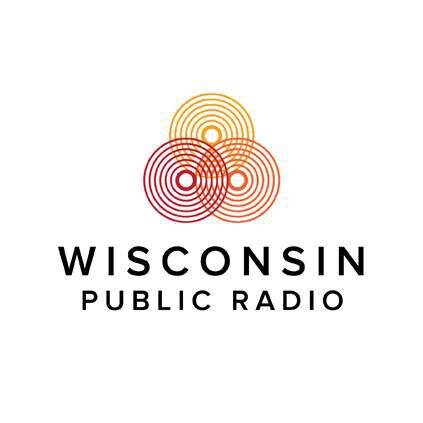Southwest Gas incessant in requesting back-to-back rate increases

Southwest Gas, one of the country’s largest gas utilities, requested an 11.88% – $125.6 million – rate increase with the Arizona Corporation Commission (ACC) earlier this year. If approved, the average monthly single-family residential bill would increase by $7.15.
SWG’s latest rate case application is part of an emerging pattern of the utility requesting an ever-increasing return on equity (ROE), the percentage the utility can profit from capital investments. In SWG’s most recent rate case, approved in January 2023, the utility requested a 9.9% ROE; the ACC ordered an allowed ROE of 9.37%. One year later, the utility is now requesting an ROE of 10.15%. As utility bills are skyrocketing across the country, a recent report by Energy Innovation – a non-partisan energy and climate think tank – illustrates that high utility profits via the return on equity is a clear contributing factor to the increasing bills, in addition to the volatility of the price of methane gas and other factors. The report analyzes electricity rates, specifically, but its findings apply to the requests made by gas utilities for rate increases.
EPI’s analysis of SWG’s pending rate increase also highlights the utility’s intention to charge customers for expenses with questionable or no benefit to customers, membership dues to political trade associations, and its expanding fossil gas infrastructure.
Consumer advocate catches unnecessary costs that benefit shareholders
In pre-filed testimony by the Residential Utility Consumer Office (RUCO), the consumer advocate recommended considerable adjustments to SWG’s application, suggesting multiple options for cutting back the rate increase, including an ROE of 9.4%. The consumer advocate recommended the removal of all the costs that SWG is asking customers to pay for Board of Director Fees – totaling $994,030 – in alignment with recently approved Commission rate decisions. The recommendation would remove the costs of board member retainer fees and meeting fees from being recovered by ratepayers because, as the Commission’s previous decision highlights, “Board of Directors are elected by the shareholders to serve the shareholders.”
Another of RUCO’s recommendations is reducing the Management Incentive Program from the utility’s request of $4,683,083 to $2,341,541. This cash-based incentive program is for management-level employees and executives that pays out based on specific benchmarks, including a corporate net income target along with safety metrics. The ACC has previously approved a 50/50 split between customers and shareholders, including in the most recent SWG rate case, yet SWG again asked for the full amount to be paid for by customers.
Other costs RUCO is contesting in the rate case include financial and estate planning for three company officers and expenses for the company’s tuition reimbursement program. After RUCO data requests, SWG conceded that the financial planning and estate planning expenses should have been charged to shareholders, and will adjust its rate request. The utility still included $120,189 in employee relocation costs in operating expenses, which RUCO finds to be imprudent for recovery. As for the tuition reimbursement program, RUCO recommended a 50/50 split and again cited previous ACC precedent in the most recent rate case.
Recovery of political trade association dues called into question
SWG is asking Arizona regulators to allow the utility to recover hundreds of thousands of dollars per year in dues to support the utility’s membership in trade associations. This includes $385,631 to the American Gas Association (AGA), the political trade group for gas utilities. AGA promotes the use of methane gas and seeks to influence federal, state, and local energy policies, including those in Arizona. It has led national campaigns to block appliance standards, halt building code upgrades designed to reduce pollution, and thwart local governments’ efforts to reduce reliance on fossil fuels. In 2020, the Arizona legislature passed HB 2686, which banned cities and towns from passing codes or ordinances to restrict a utility provider’s service, such as the fossil gas from SWG. SWG supported HB 2686 and gave the legislators sponsoring the bill thousands of dollars in contributions.
AGA has also launched social media ad campaigns to improve public perceptions of cooking with gas, despite years of research showing that pollutants released by gas stoves have severe health effects. SWG used the same tactic when it launched a social media campaign to tout the benefits of fossil gas in Nevada.
SWG’s application removed 3.4% of AGA membership dues that AGA has identified as “lobbying in nature.” However, AGA relies on a narrow definition of the term lobbying from the Internal Revenue Service that does not accurately reflect the trade group’s wide scope of political activities and advocacy work. In previous rate cases, RUCO has asked for a disallowance of 50% of the utility’s membership dues to AGA, which it has recommended again, stating that if the Commission decided to remove 100% of the dues for AGA, it would not oppose that decision. That’s what the ACC did in Arizona Public Service’s most recent rate case, when the commissioners ruled to disallow the entirety of membership dues to the electric utility trade association, the Edison Electric Institute.
RUCO also recommended the removal of industry dues to the Arizona Lodging and Tourism Association.
RUCO did not address SWG’s request to recover $18,000 in membership dues from customers to the Coalition for Renewable Natural Gas (RNG Coalition). The RNG Coalition is a 501(c)6 trade association that promotes the expansion of “renewable natural gas” (RNG) markets. The group often appears in testimony and public comments for state regulatory commissions and legislative meetings across the county. In Nevada’s 2021 “Future of Gas” docket, the RNG Coalition submitted comments in favor of the development of RNG in the state.
The trade group advocates for favorable RNG policies at the state level. In May 2021, the ACC hosted an RNG workshop and invited representatives of SWG, AGA, and the RNG Coalition to present. In response to questions from the Arizona PIRG Education Fund, the RNG Coalition conceded that “the estimated potential for RNG from anaerobic digestion feedstocks in the 2040 timeframe” could replace only 5.4% of the country’s current gas consumption in the residential, commercial, industrial, and fossil gas vehicle sectors.
In a 2020 report, Earthjustice and the Sierra Club found that RNG is not available at the scale necessary to decarbonize buildings, nor will it resolve many air pollution issues concerning the use of gas. The report also found that RNG adoption would lead to higher customer costs. Investigations into utilities’ promises promoting RNG have underscored the companies’ failure to meet climate goals with alternative fuel.
Southwest Gas proposing new “safety” mechanism
SWG’s rate increase application proposed a System Improvement Benefit (SIB) mechanism, a regulatory tool that allows the utility to adjust rates between rate cases to recover the revenue requirement for non-revenue-producing investment. SWG cited the need for significant investment to “modernize” the gas system, but intervenors in the rate case voiced concerns regarding the SIB mechanism.
As noted by the Southwest Energy Efficiency Project (SWEEP) in that advocacy organization’s pre-filed testimony, a utility like SWG typically makes capital investments in its gas distribution system and then files for recovery of those investments in a rate case once the equipment is in service. With the SIB mechanism, SWG wants to “dramatically change this paradigm,” SWEEP said. SWEEP raised concerns that the SIB “incentivizes the Company to overspend on Code and Regulatory pipe replacements,” citing SWG’s plans to increase the pace it invests in the gas delivery system through 2028. SWG is on pace to spend $490 million on capital investments in 2024, a 37% increase over its 2023 expenditures.
RUCO’s testimony asserted that SWG’s stated need for the SIB is “predicated on questionable cost recovery issues – not safety,” and further cites concerns regarding the proposal’s inability to sufficiently provide transparency, ratepayer protections, and incentives for the utility to be cost effective.
In other states where utilities have implemented ratemaking mechanisms allowing expedited recovery of pipeline replacement, like the SIB proposed by SWG, it’s resulted in increased prices for customers. The Washington D.C. Council filed a petition for the Public Service Commission of the District of Columbia to investigate Washington Gas Light Company for its pipeline replacement project, “PROJECTpipes.” The Council cited its own climate goals as being misaligned with the project, affirming that as more homes and buildings electrify, the system would become obsolete, and that it would be expensive for Washington Gas customers. The Office of People’s Counsel, the consumer advocate for ratepayers in Maryland, found that since the initiation of PROJECTpipes in 2014, the Washington Gas system had more gas leaks, replacement was below projections, and the budget was not in line with the utility’s initial proposals.
A similar outcome came from the Illinois Commerce Commission (ICC). The ICC denied a significant portion of Peoples Gas’ rate increase request in 2023 after substantial scrutiny for the utility’s pipeline replacement efforts, and paused funding for the ratemaking mechanism. The ICC also ordered a new investigation of Peoples’ ongoing pipeline replacement efforts and paused the funding until an investigation is complete. The ICC also opened a future of gas proceeding to determine a detailed action plan for the utilities’ future infrastructure investments and the impacts on Illinois’ decarbonization and electrification goals.
Intervenors find SWG misses the mark on affordability
Direct testimony from Wildfire, an Arizona nonprofit focused on ending poverty, highlighted SWG’s proposals affecting affordability, especially for residential, low-income customers. The testimony noted that in SWG’s 916-page document, the company mentioned the word “afford” or any of its derivations only five times, “none of which are used to support achieving meaningful affordability for customers.” Wildfire’s testimony provided evidence of low-income customers struggling to afford SWG bills since 2022, referencing growth in debt for customers and an increase in the number of accounts with arrearages.

Table from Wildfire’s Pre-filed Testimony
RUCO drew attention to growing income inequality in Arizona, noting that most of SWG’s customers live in counties with increasing income inequality. RUCO and Wildfire highlighted the health and safety concerns customers face if affordability is overlooked in the rate increase. RUCO pointed out that 16,070 customers were disconnected from service by SWG in 2023, with substantial variations based on zip codes. The intervening groups recommended that SWG increase enrollment in bill assistance programs to support the growing number of customers affected by rate increases.
Over 70 customers have so far filed comments to the ACC regarding the rate case, with more likely to come with upcoming telephonic comment windows and a public hearing. All but one explicitly opposed the increase. In its last rate case, SWG distorted the public comment process when it recruited Arizona mayors to sign onto a letter the utility had drafted to drum up outside support for its rate increase. The letter of support was submitted to the Arizona Corporation Commission without disclosing SWG’s involvement, which was only revealed through public records requests filed by EPI. Though the information was made public before the ACC ruled on the rate case, SWG was not penalized for its lobbying efforts.
The final telephonic public comment opportunity is scheduled for October 25th, while the ACC will hold a public comment and begin the rate case hearing on November 20.
Featured image contributed to flickr by Michael Bliefert



